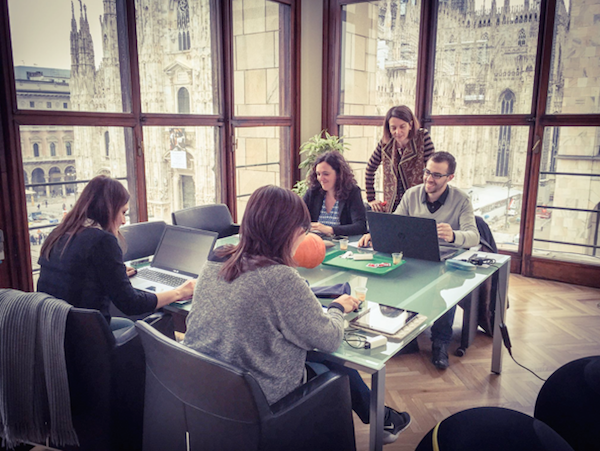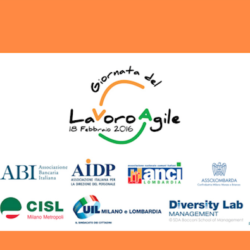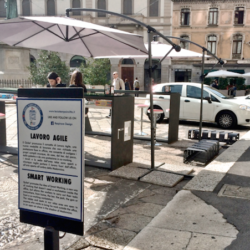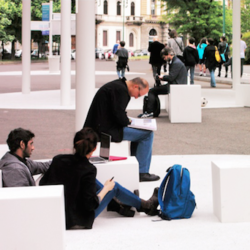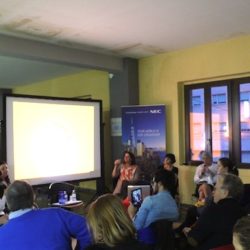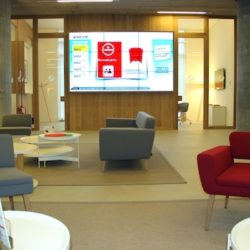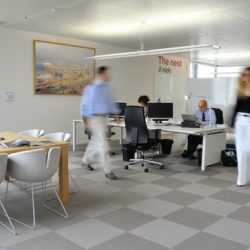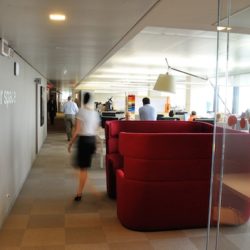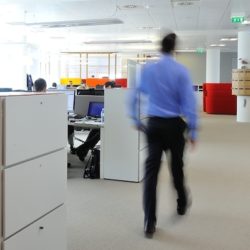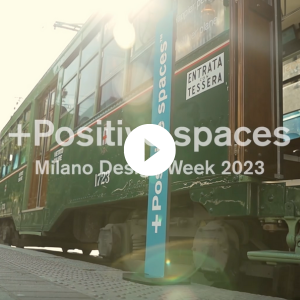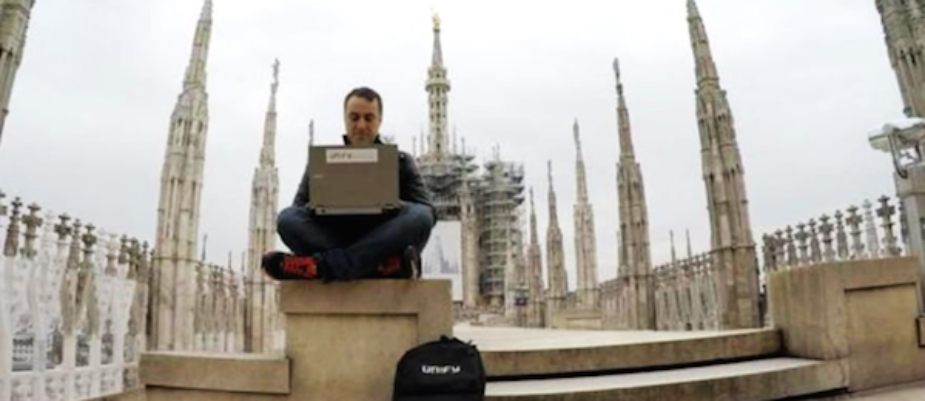
What impact has the agile working on the real estate and on the city? We discussed about it in the WOW! Agile Working Island 2016, comparing the experience of the public administration and of investors and private companies. As the Milan Model of UniCredit and the initiatives organised by the Municipality of Milan, as the Agile Working Day, show, smart working brings some changes that go far beyond the office space, designing new urban spaces and new professional figures.
Opening the WOW! Agile Working Island’s Jelly Session “Agile working: what is the impact on the real estate and on the city?”, Chiara Bisconti, councillor for Municipality of Milan for Wellbeing, sport and leisure, human resources and environment, underlined that smart working can be a model for the public administration.
Taking into consideration what has been experienced in the the private companies, Milan’s public administration developed new solutions in the third Agile Working Day, creating new spaces and wi-fi areas throughout the city, allowing people to work everywhere, and giving the chance to the employees of the Municipality to choose one of the public administration’s office to work in, by the simple use of an app.
The public administration, however, is not the only factor leading the change of the urban environment: also private companies, through the introduction of the smart working, create new needs with a strong impact over the surrounding space.
The first factor is the new way of thinking the working environment as Anna Maria Ricco, Head of real estate Italy di UniCredit Business Integrated Solutions, explained The so called Milan Model is an experiment of management lead by UniCredit and based on the desk sharing and on the differentiation of the work setting.
This means less workstation than the workers’ number, encouraging mobility, an organisation of the space based on the workers’s need, with private spaces for calls, video-class, concentration or formal meetings that comes along with the open space model, organised with a “clean desk policy” for the privacy compliance.
In order to encourage the agile working, UniCredit also created a system of “neighbourhood offices”, called UniCredit Hub, with several workstation that can be book on a web platform.
Finally the new ways of working require different kind of working environment and less work spaces: so what is the destiny of the exceeding spaces? Is it still convenient to invest in the office real estate? What is the evolution of this field? These questions need to be further examined, as Barbara Polito, president of AREL (Real Estate Ladies Association), said.
Most of all, as we have seen the growing success of the co-working space model, there is the need of a new professional figure capable to connect the facility manager to the user: a manager with new competences and able to design a multifunctional space with different services and functions in order to value the space and make it profitable, without the fix income of a company rent, but with a day prize paid by smart workers.
Text by Gabriele Masi.
Pictures 1-4 and in evidence from Chiara Bisconti’ PPT presentation (c)Comune di Milano.
